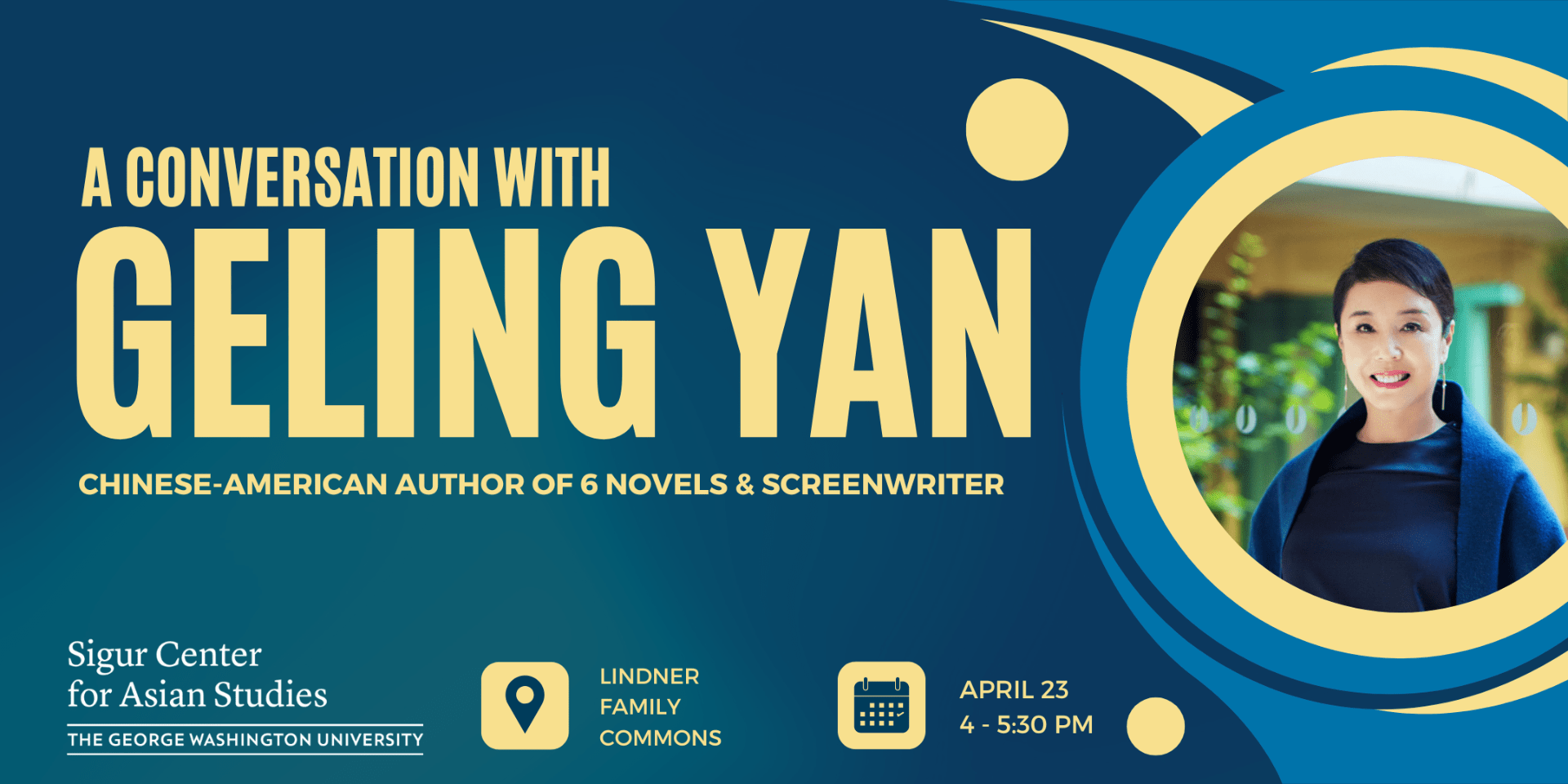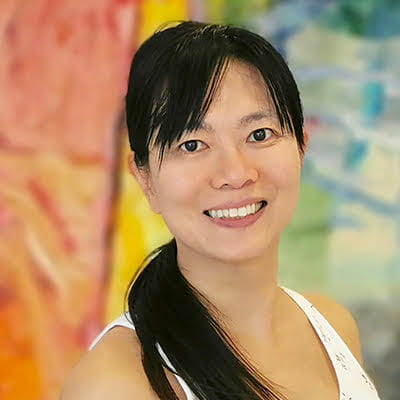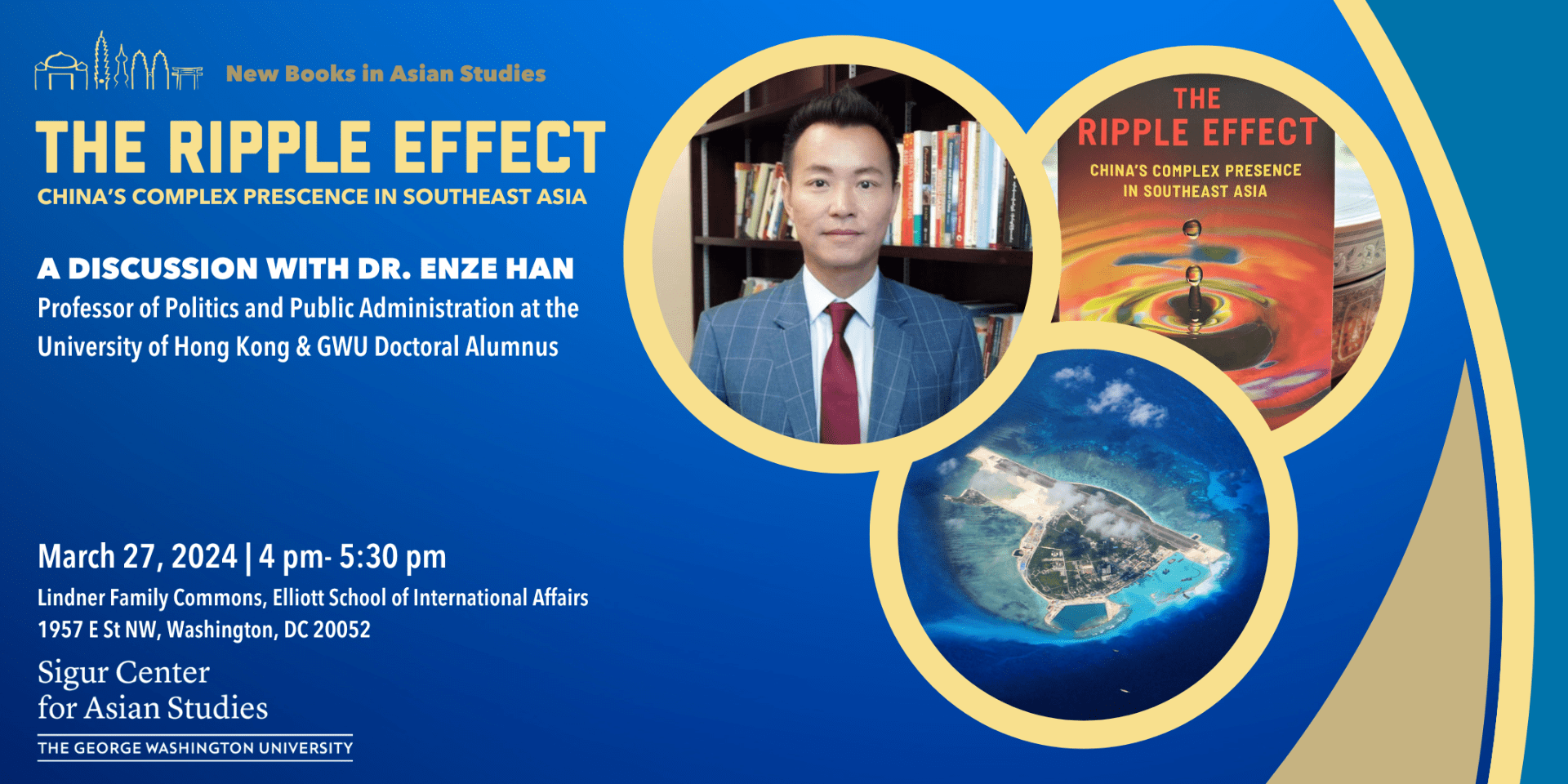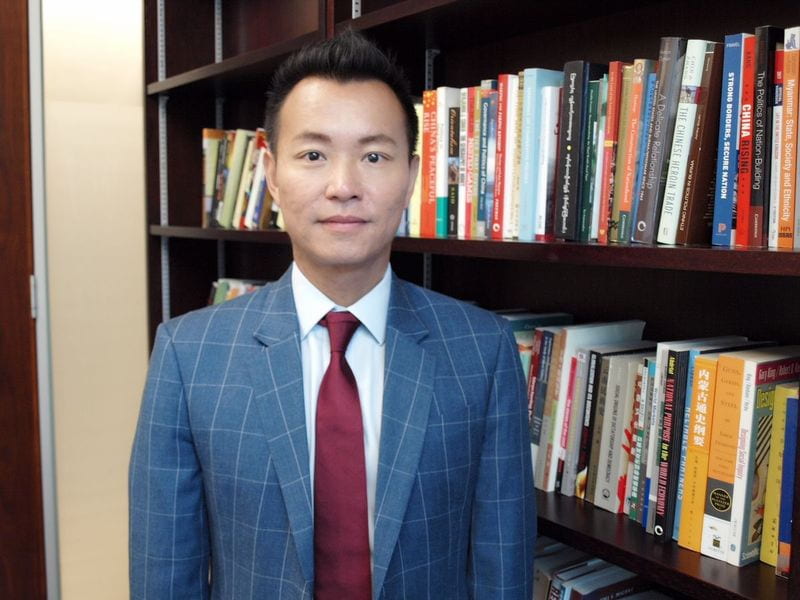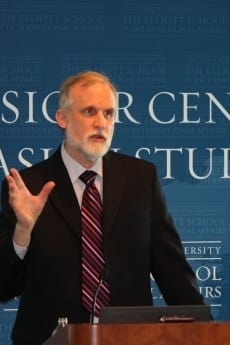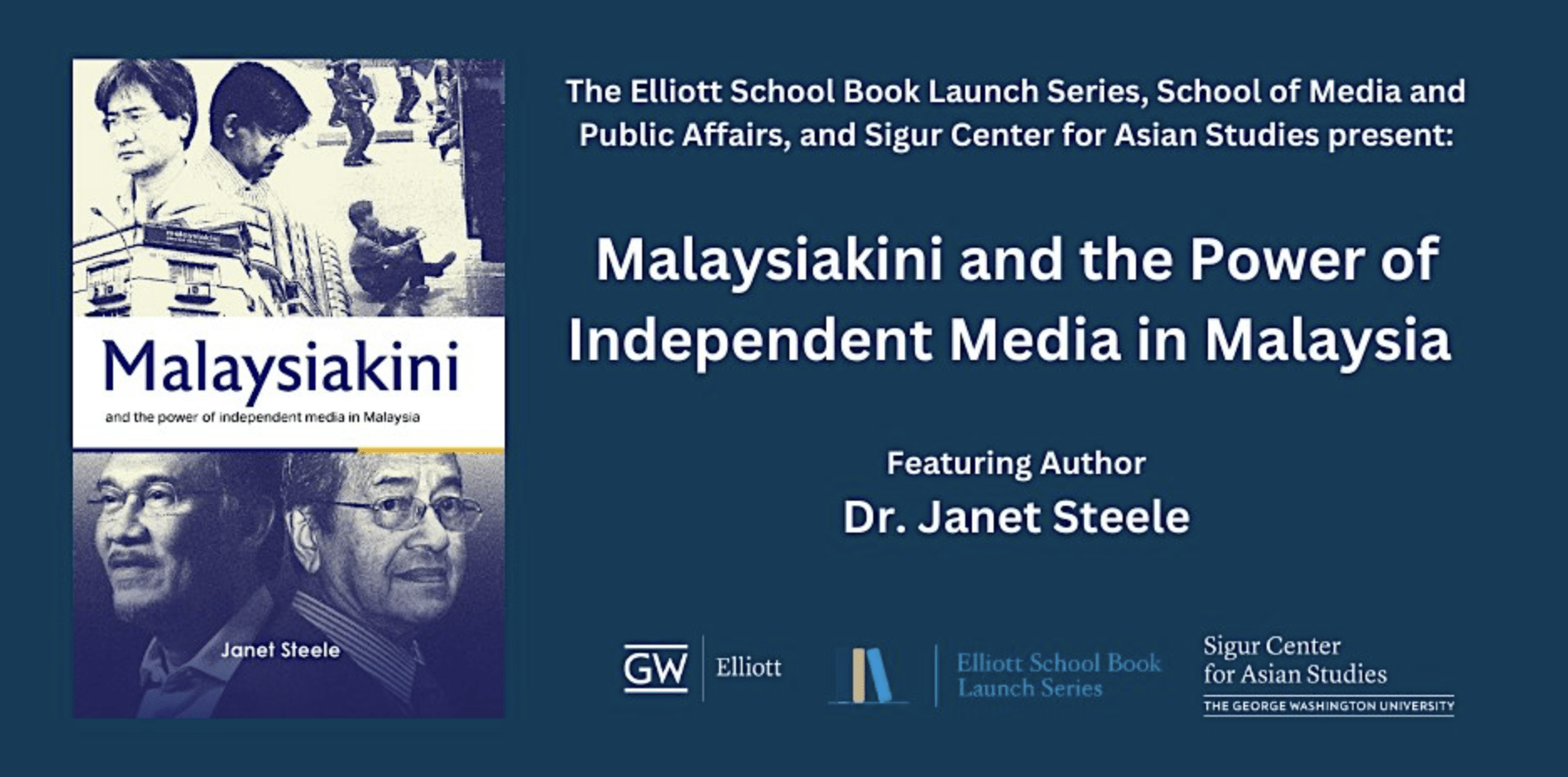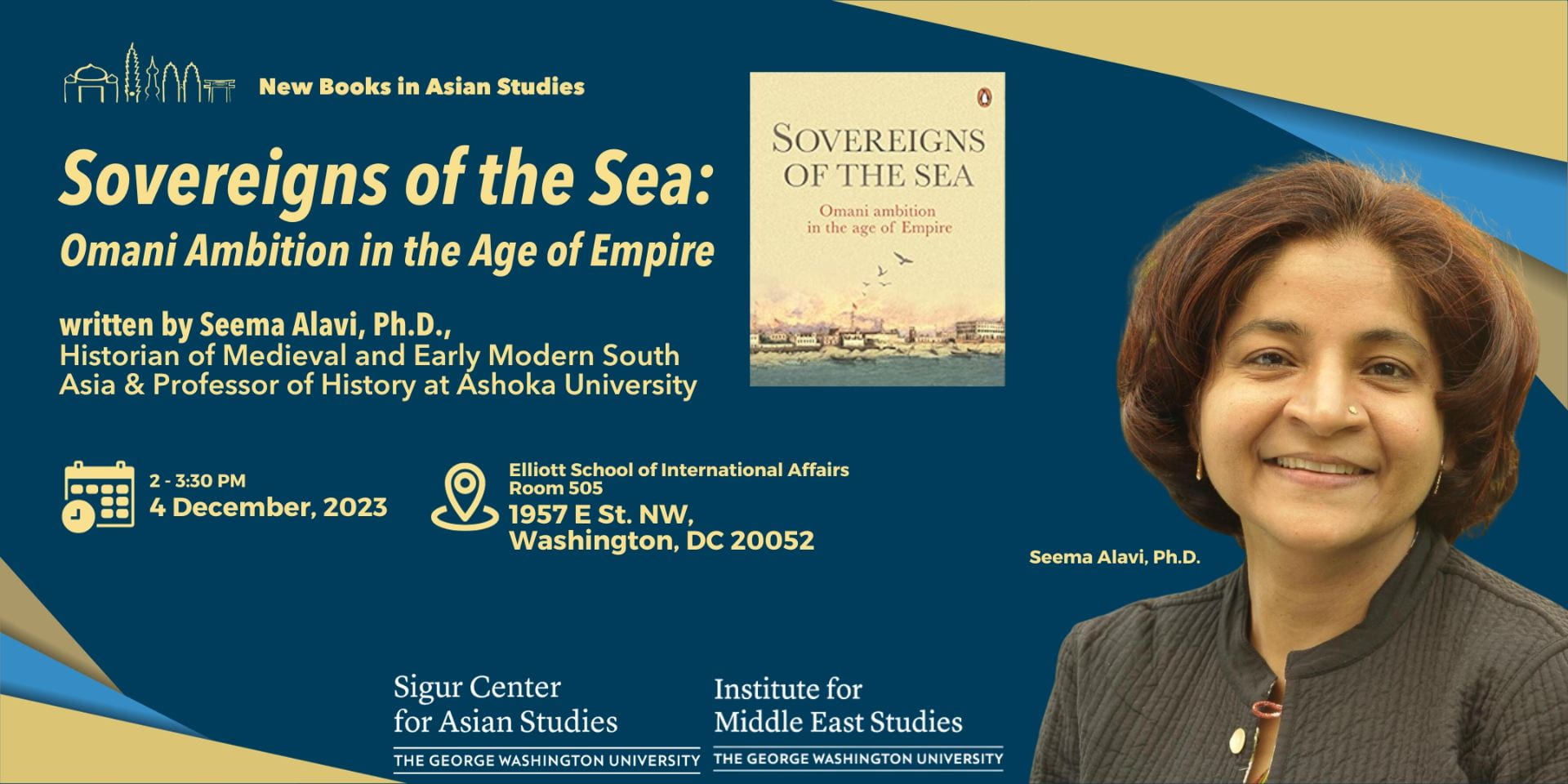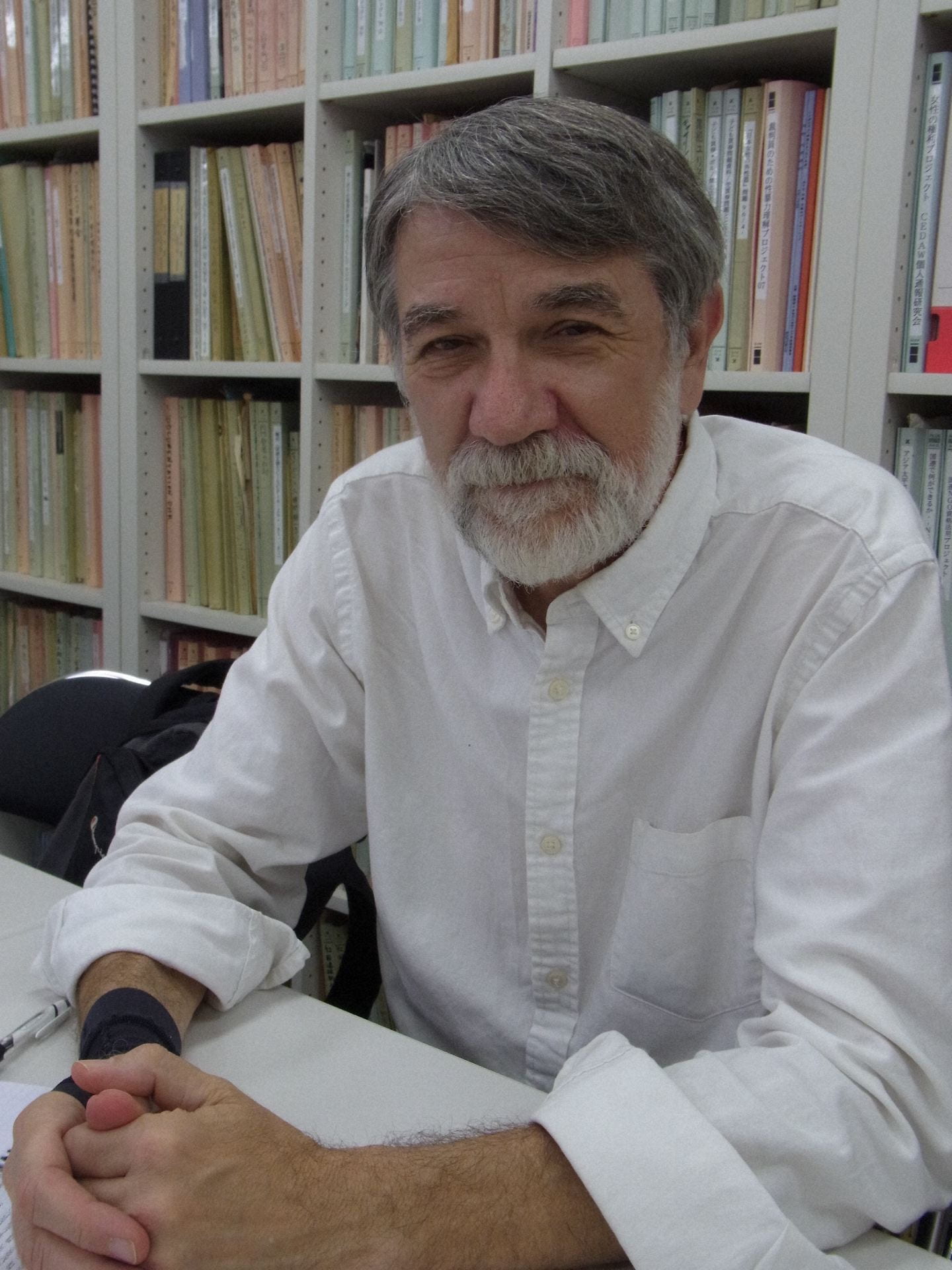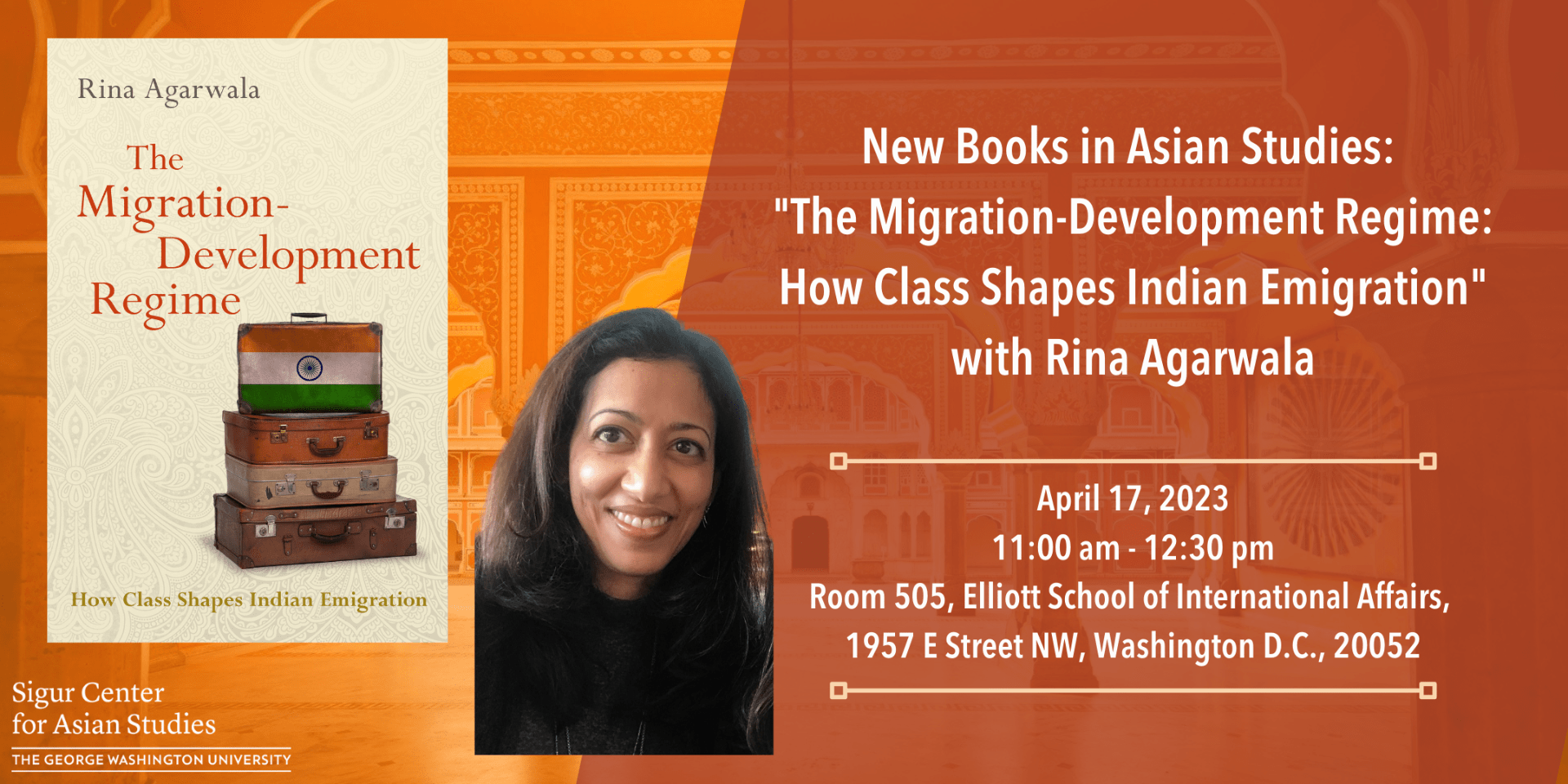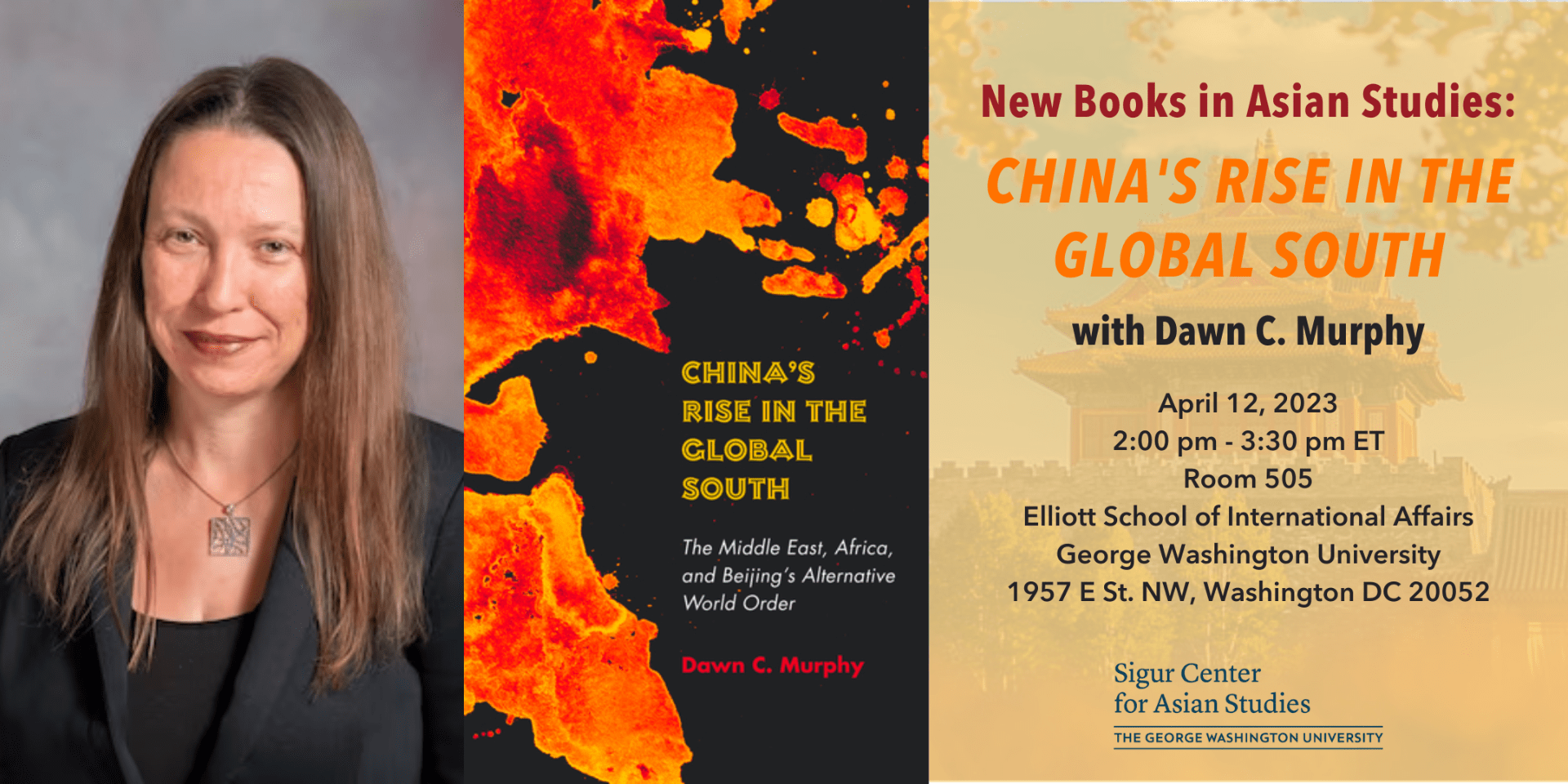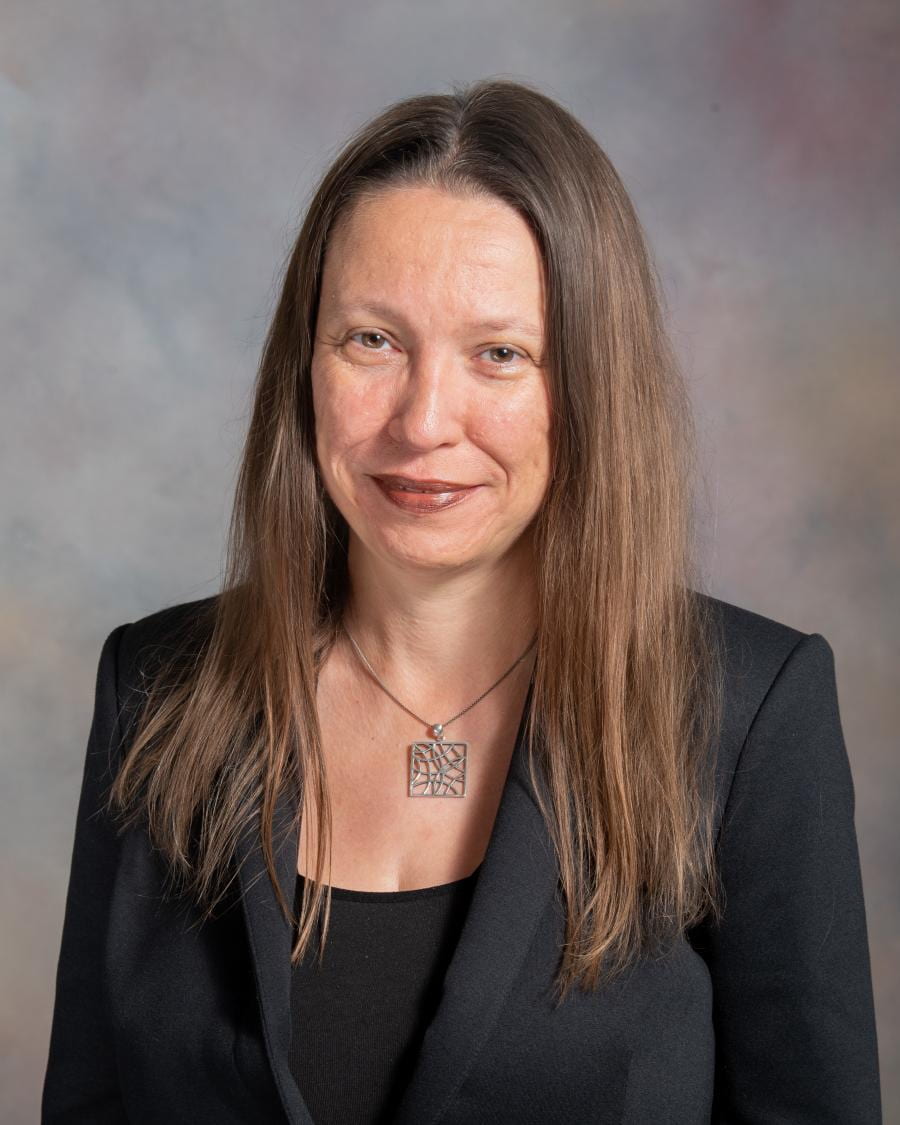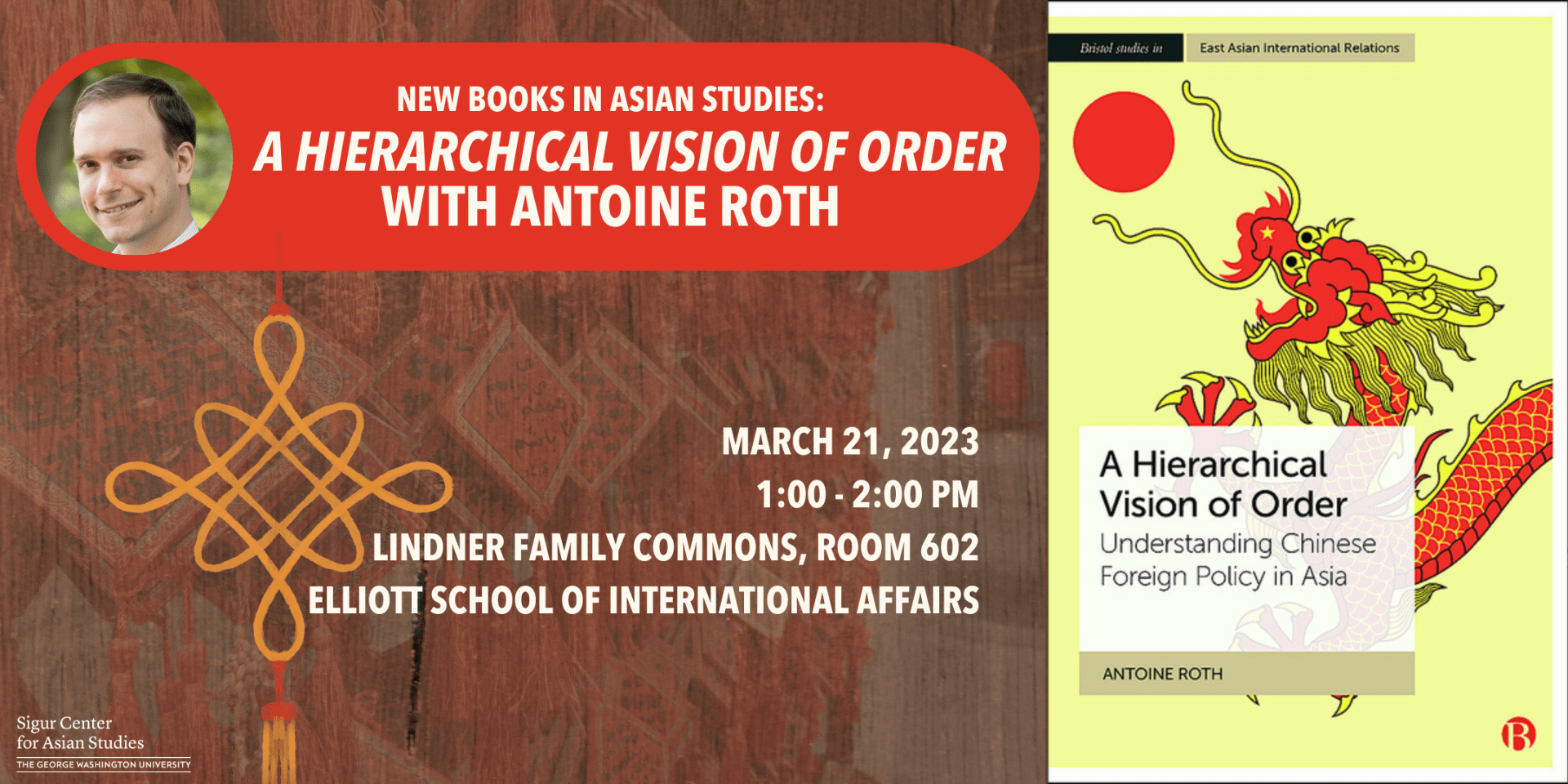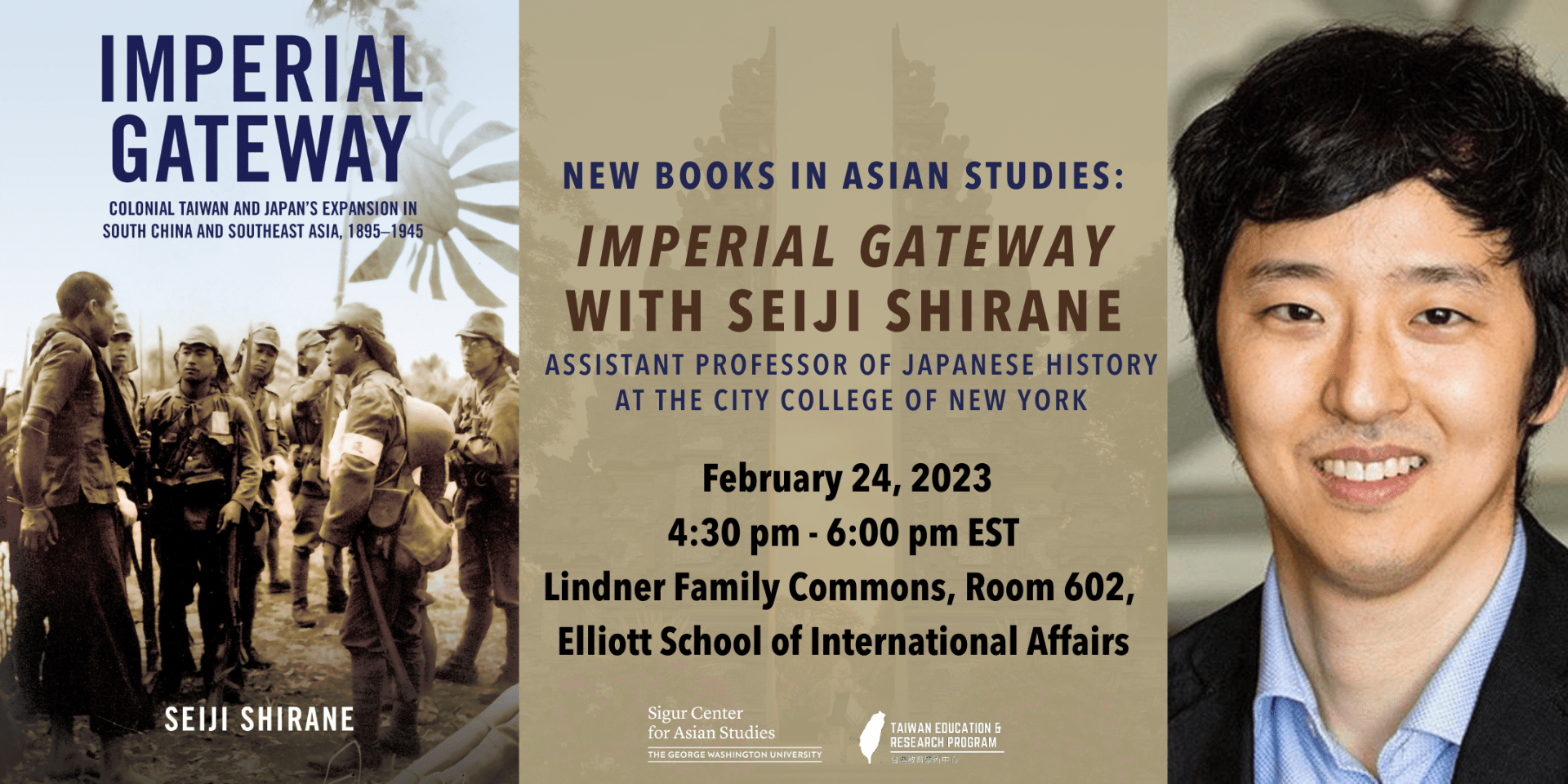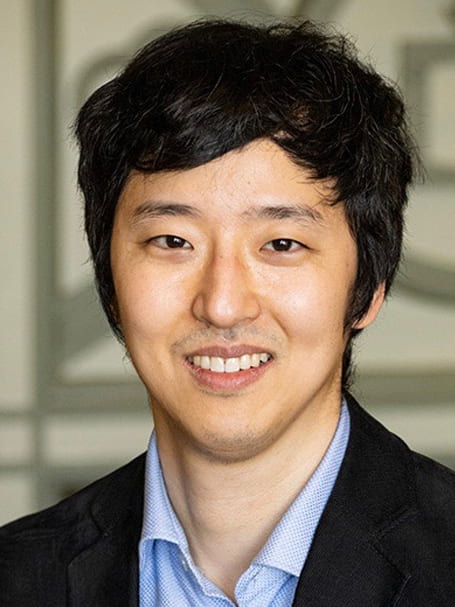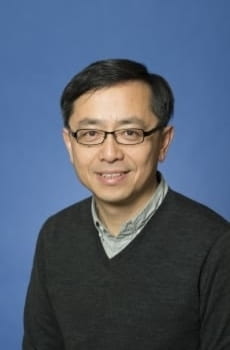Tuesday, April 23, 2024
4:00 PM – 5:30 PM EDT
Lindner Family Commons
Elliott School of International Affairs
1957 E Street NW Washington, D.C. 20052
Join the Sigur Center for Asian Studies for a conversation with accomplished novelist and screenwriter Geling Yan 嚴歌苓. Born in Shanghai, she served with the People’s Liberation Army (PLA) during the Cultural Revolution, starting at age twelve as a dancer in an entertainment troupe.
After more than a decade with the PLA, she published her first novel in 1986 and has been writing constantly ever since. Her best-known novels in English are The Secret Talker, Little Aunt Crane, The Banquet Bug, The Lost Daughter of Happiness, and White Snake and Other Stories. Many of her novels have been adapted for films and television series, including Youth (Feng Xiaogang), three films by Zhang Yimou (The Flowers of War, Coming Home, and One Second), Xiu Xiu: The Sent-Down Girl (directed by Joan Chen), A City Called Macau (directed by Li Shaohong) and Siao Yu(directed by Sylvia Chang and produced by Ang Lee). Her novel The Lost Daughter of Happiness is being adapted into a musical, FUSONG, which was presented to the New York Citytheater community earlier this month and addresses anti-Asian racism, violence, and the transcendence of love.
In this talk, Ms. Yan will discuss her life, her works, censorship, and her latest book Milati, which was published in 2023. The story is about a young woman named Milati, a dancer tuned novelist, her cohort, and that of her artist father during the 1980s in China, when the country opened up, everything seemed possible, and they thought would go on forever. Selected copies of Ms. Yan’s works will be sold at the event.
Speaker
Geling Yan 嚴歌苓 is one of the most acclaimed novelists and screenwriters in the Chinese language and a well-established writer in English. Born in Shanghai, she served with the People’s Liberation Army (PLA) during the Cultural Revolution, starting at age twelve as a dancer in an entertainment troupe.
After more than a decade with the PLA, she published her first novel in 1986 and has been writing constantly ever since. Her best-known novels in English are The Secret Talker, Little Aunt Crane, The Flowers of War, The Banquet Bug , The Lost Daughter of Happiness, and White Snake and Other Stories.
Many of Ms. Yan’s works have been adapted for film and television, directed or produced by famous directors such as Zhang Yimou, Chen Kaige, Feng Xiaogang, Ang Lee, Li Shaohong and Joan Chen. She is a member of the Academy of Motion Picture Arts and Sciences.
Ms. Yan holds an MFA in Fiction Writing from Columbia College, Chicago. She has published over 40 books and has won over 30 literary and film awards. Her works have been translated into twenty-one languages. She has been subject to an unwritten ban in China since March 2020, when she wrote an essay criticizing the Chinese government’s handling of the COVID-19 crisis. She resides in Berlin, Germany and has recently co-founded a company, New Song Media GmbH, to produce films and to publish her works outside China.
Discussant
As a Public Interest Technology Scholar Program fellow and an affiliate at the Institute for Trustworthy AI in Law and Society (TRAILS), Alexa Alice Joubin is a leading voice in generative AI and social justice issues. She is the inaugural recipient of the bell hooks Legacy Award and holder of the Martin Luther King, Jr. Award. She writes about artificial intelligence (AI), race, gender, globalization, Taiwan and Sinophone diaspora studies, cultural diplomacy, and film and theatre. The bell hooks Award recognizes her achievements in “dismantling intersectional systems of oppression with the distinct goals of uplifting members of historically marginalized populations and striving for social justice,” through her “groundbreaking work that speaks to our moment in history and our hope for the future” and her public scholarship, use of generative AI tools as assistive technology in class, open-access publications, and inclusive pedagogies. The recipient of George Washington University’s Trachtenberg Research Award, Dr. Joubin is the co-author of Race (2018) and the author and editor of 24 books on global feminism, critical race theory, and performance studies.
Dr. Joubin teaches in the English department, is an affiliated faculty in Women’s, Gender, and Sexuality Studies, and co-founded the GW Digital Humanities Institute. She directed the Dean’s Scholars in Shakespeare (a signature program of GW’s Columbian College of Arts and Sciences). At MIT, she is co-founder and co-director of the open access Global Shakespeares digital performance archive. Her publications can be accessed on ResearchGate.
Her teaching and publications are unified by a commitment to understanding the mobility of early modern and postmodern cultures in their literary, performative, and digital forms of expression. Her research has been funded by the Fulbright, National Endowment for the Humanities, American Council of Learned Societies, Chiang Ching-kuo Foundation, International Shakespeare Association, Folger Institute, and other agencies.
Moderator
Janet Steele is professor of Media and Public Affairs and International Affairs, and the interim director of the Sigur Center for Asian Studies. She received her Ph.D. in History from the Johns Hopkins University, and focuses on how culture is communicated through the mass media.
Dr. Steele is a frequent visitor to Southeast Asia where she lectures on topics ranging from the role of the press in a democratic society to specialized courses on narrative journalism. Her book, “Wars Within: The Story of Tempo, an Independent Magazine in Soeharto’s Indonesia,” focuses on Tempo magazine and its relationship to the politics and culture of New Order Indonesia. “Mediating Islam, Cosmopolitan Journalisms in Muslim Southeast Asia,” explores the relationship between journalism and Islam in Indonesia and Malaysia.
Awarded two Fulbright teaching and research grants to Indonesia and a third to Serbia, she has served as a State Department speaker-specialist in Indonesia, Malaysia, Vietnam, Cambodia, Brunei, the Philippines, East Timor, Taiwan, Burma, Sudan, Egypt, India, Bangladesh, Jamaica, and Kosovo. The author of numerous articles on journalism theory and practice, her 2014 book, “Email Dari Amerika,” (Email from America), is a collection of newspaper columns written in Indonesian and originally published in the newspaper Surya. Her most recent book, forthcoming in October 2023, is called “Malaysiakini and the power of independent media in Malaysia.”

